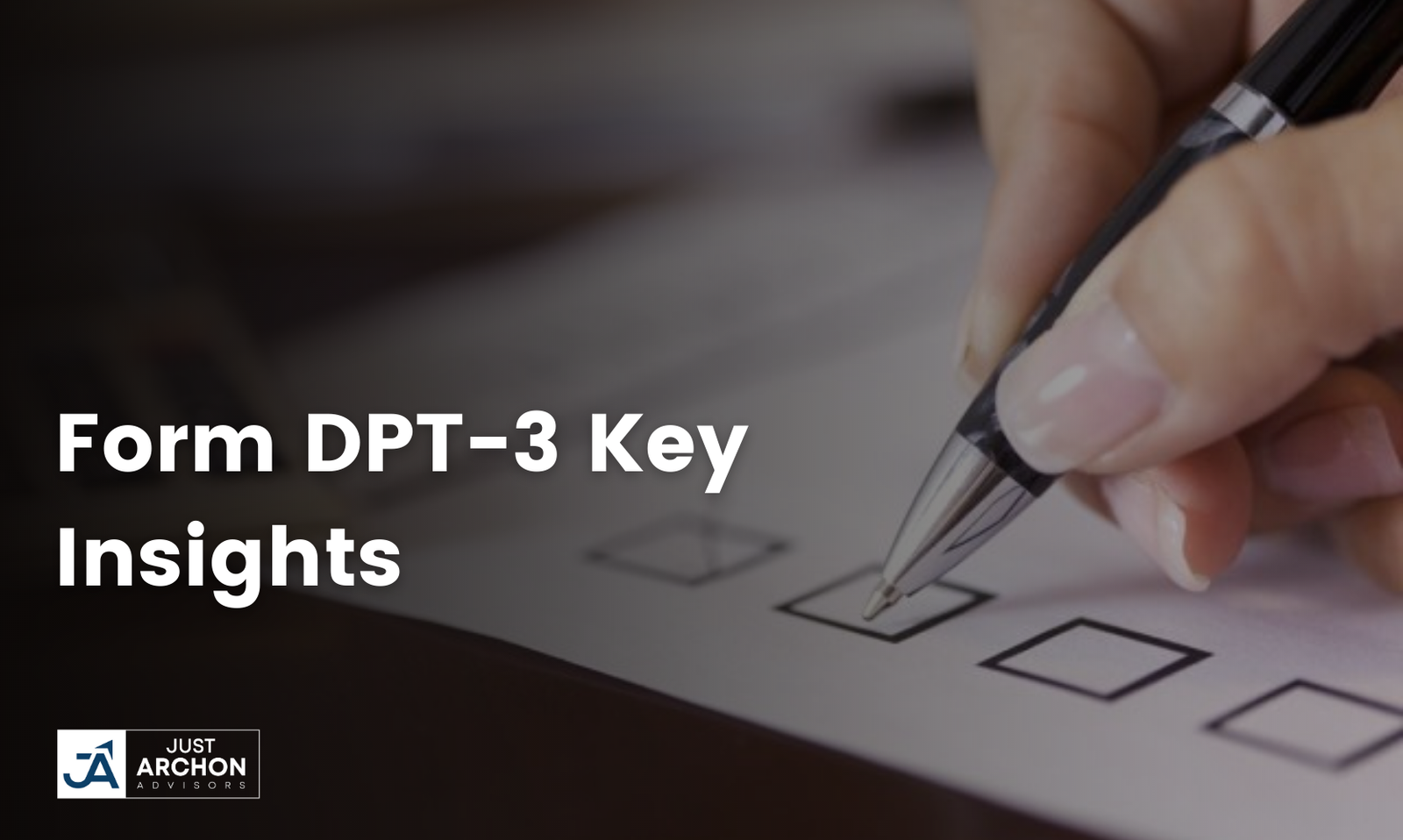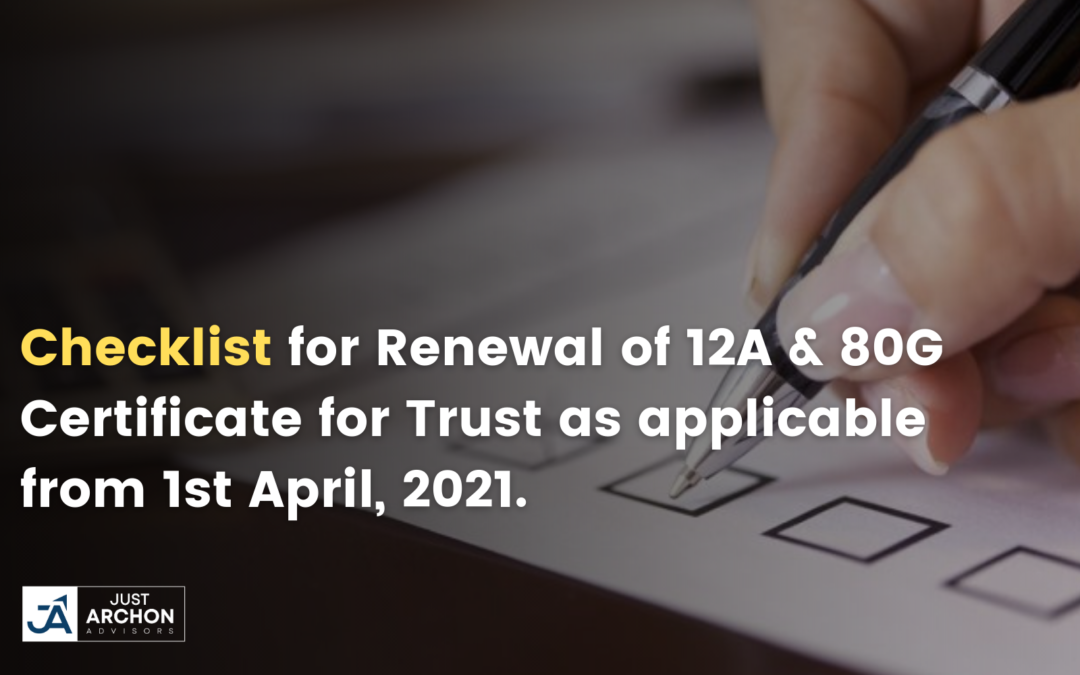Earlier Form DPT-3 was only applicable to the companies which were accepting deposits under Chapter V Acceptance of Deposits by Companies.
However with the introduction of notification dated 22nd January, 2019 the ambit and scope of Form DPT-3 has increased.
Objective:
In order to identify the amount received by the company as a loan, advance or deposit and non-reporting of any actual deposits received by the company. So that if any company has received any amount irrespective of covered under the definition of Deposit or not, It has to report such receipt by filing Form DPT-3.
Introduction:
In order to govern the amount received by the company from various sources, MCA came up with a notification on 22nd January, 2019 and 30th April, 2019 by making addition in Rule 16A in The Companies (Acceptance of Deposits) Rules, 2014 stating that
“Every Company other than Government Company shall file a onetime return of outstanding receipt of money or loan by a Company but not considered as deposits, in terms of clause (c) of sub-rule 1 of rule 2 from the 01st April, 2014 to [31st March 2019], as specified in Form DPT-3 within [ninety days from 31st March, 2019] along with fee as provided in the Companies (Registration offices and Fees) Rules, 2014]”
Two new types of return were introduced with this amendment in the Form DPT-3 as below:
1) One time return for disclosure of details of outstanding money or loan received by a company but not considered as deposits from 01/04/2014-31/03/2019
2) Annual Return for Particulars of a transaction not considered as deposits.
Hence with this amendment there are four options given in the Form DPT-3
1) Onetime Return for disclosure of details of outstanding money or loan received by a company but not considered as deposits in terms of rule 2(1)(c) of the Companies (Acceptance of Deposits) Rules, 2014
2) Return of Deposit.
3) Particulars of transactions by a company not considered as deposit as per rule 2 (I) (c) of the Companies (Acceptance of Deposits) Rules, 2014
4) Return of Deposit and Particulars of transactions by a company not considered as deposit.
Let us understand these four options in detail:
1) Onetime Return for disclosure of details of outstanding money or loan received by a company but not considered as deposits in terms of rule 2(1)(c) of the Companies (Acceptance of Deposits) Rules, 2014.
As the name itself suggests, this is applicable for one time return being filed by those companies which are having outstanding money or loan as on 31st March, 2019 received during the period from 01/04/2014-31/03/2019.Only those amount to be reported which are not considered as deposits in terms of rule 2(1)(c) of the Companies (Acceptance of Deposits) Rules, 2014.
2) Return of Deposit.
This is applicable to those companies which have accepted deposits under CHAPTER V ACCEPTANCE OF DEPOSITS BY COMPANIES.This was the original return which was filed by the company prior to the notification dated 22nd January, 2019.Actual deposits accepted by the company to be filed under this option.This is applicable annually.Mandatory Attachment – Auditors Certificate and List of Depositors. Also Copy of Trust Deed, Copy of Instrument creating the charge if applicable.
3) Particulars of transactions by a company not considered as deposit as per rule 2 (I) (c) of the Companies (Acceptance of Deposits) Rules, 2014
This is applicable to those companies which have received any amount not considered as deposit as per rule 2 (I) (c) of the Companies (Acceptance of Deposits) Rules, 2014.This is Applicable Annually.Following Transactions are covered under this option summarized hereby-
(a) any amount received or guaranteed from the Central Government or a State Government.
(b) any amount received from foreign Governments, foreign or international banks, multilateral financial institutions.
(c) any amount received as a loan or facility from any banking company or from the State Bank of India or any of its subsidiary banks or from a banking institution notified by the Central Government.
(d) any amount received as a loan or financial assistance from Public Financial Institutions notified by the Central Government.
(e) any amount received by a company from any other company.
(f) any amount received as Share application money.
(g) any amount received from a person who, at the time of the receipt of the amount, was a director of the company or a relative of the director of the Private company:
(h) any amount raised by the issue of bonds or debentures secured by a first charge, bonds or debentures compulsorily convertible into shares of the company within ten years.
(i) any amount received from an employee of the company not exceeding his annual salary under a contract of employment with the company in the nature of non-interest bearing security deposit.
(j) any advance received in the course of business for supply of goods or service upto 365 days from the date of acceptance of such advance.
Furthermore detailed transaction information is given under Rule 2 (1) (c) of The Companies (Acceptance of Deposits) Rules, 2014.
Hence any amount covered under Rule 2 (1) (c) of The Companies (Acceptance of Deposits) Rules, 2014 shall be reported under this option.
(4) Return of Deposit and Particulars of transactions by a company not considered as deposit
This is applicable to those companies which have both types of transactions i.e. Acceptance of Deposits under CHAPTER V ACCEPTANCE OF DEPOSITS BY COMPANIES and receipt of any amount not considered as deposit as per rule 2 (I) (c) of the Companies (Acceptance of Deposit) Rules, 2014.This is Applicable Annually.Mandatory Attachment – Auditors Certificate and List of Depositors. Also Copy of Trust Deed, Copy of Instrument creating the charge if applicable.
Important Points to be noted:
Auditors Certificate is mandatory only when the companies have accepted actual deposits.Net Worth to be mentioned in the form shall be as per the latest Audited Financial Statement.If the securities for which application money or advance for such securities was received cannot be allotted within sixty days from the date of receipt of the application money or advance for such securities and such application money or advance is not refunded to the subscribers within fifteen days from the date of completion of sixty days, such amount shall be treated as a deposit under these rules.Any amount received from the director or relative of the director shall be furnished with the declaration in writing to the effect that the amount is not being given out of funds acquired by him by borrowing or accepting loans or deposits from others.Any amount received for the issuance of compulsorily convertible debentures beyond the period of 10 years shall be considered as deposits.Any advance received for supply of goods or services beyond 365 days will be considered as deposit.
Auditor’s certificate – Mandatory if purpose ‘Return of Deposit’ or ‘Return of Deposit and Particulars of transactions by a company not considered as deposit’ is selected.Copy of trust deed – Mandatory if company has trust deed and details of same are mentioned in the formCopy of instrument creating charge – Mandatory if company has trust deed and details of same are mentioned in the formList of depositors – List of deposits matured, cheques issued but not yet cleared to be shown separately – Mandatory if company has balance of deposits outstanding at the end of the year.Details of liquid assetsOptional attachment, if any.
Fees:
Fees shall be as per The Companies (Registration offices and Fees) Rules, 2014.
Processing Type:
The eForm will be processed by the office of Registrar of Companies (Non STP).
Note- The contents of this article are for knowledge purposes only and do not constitute any legal opinion and are personal views of the author.




0 Comments